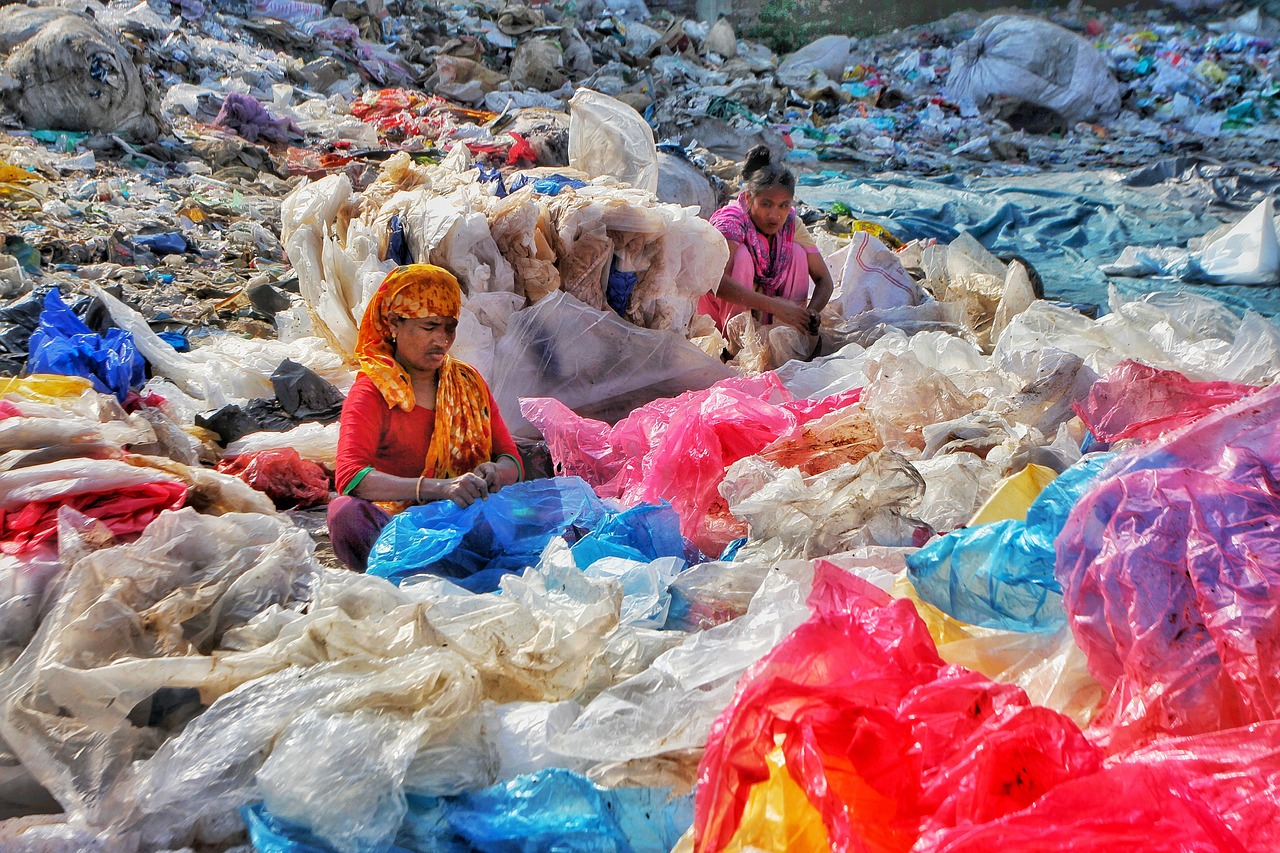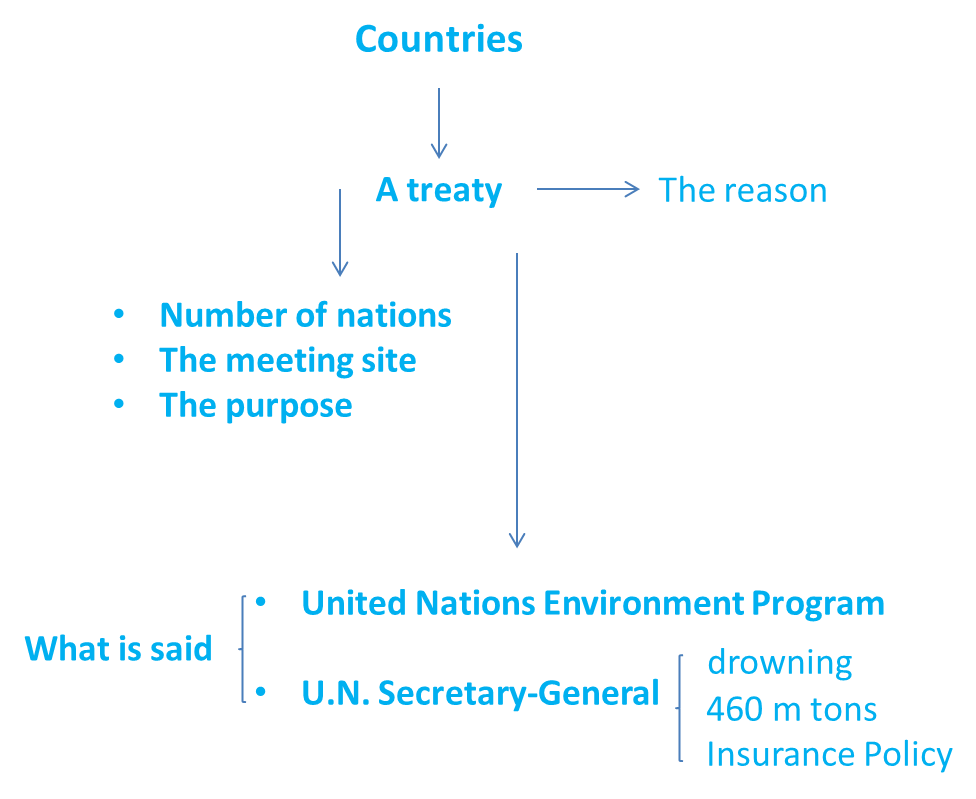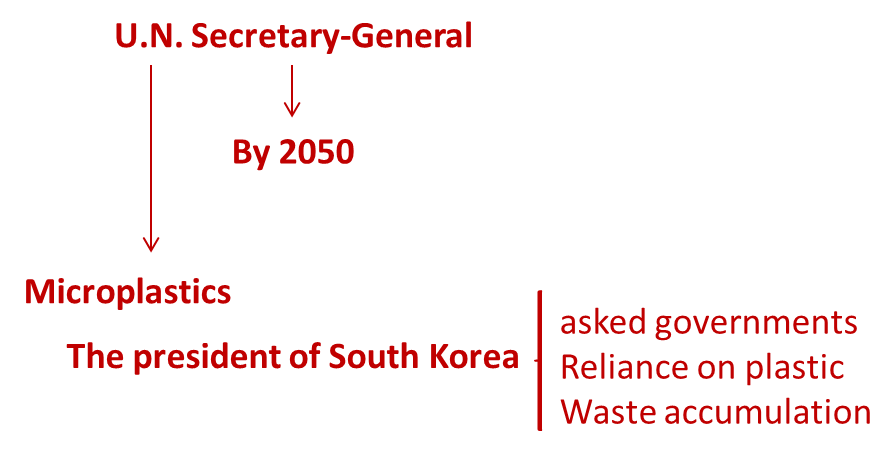
Eshragh Newsletters 17
The Article Listening One / Listening Two
POLLUTIONS Plastic pollution - River pollution - Noise pollution
Writing (for ielts)
Countries could soon a to how much plastic pollution we create. from 175 nations have been meeting in South Korea to talk about the problem of plastic . The United Nations Environment Program said the treaty is necessary to help the future of the planet. Antonio Guterres spoke about how serious the problem is. He said: "Our world is in plastic . Every year, we produce 460 million tons of plastic, is quickly ." The U.N. said a treaty is, "an for this and future ones, so they may live with plastic and not by it".
Antonio Guterres gave a of what might happen in the future if we do not now. He said: "By 2050, there could be more plastic than fish in the ocean. Microplastics in our are creating health problems that we're only just beginning to understand." The president of South Korea Mr Guterres' . He asked governments a path plastic pollution. He said we have too much on plastic because it is so . He added: "The waste in our oceans and rivers now the lives of future generations." He asked governments, "to open a new historic by a treaty on plastic pollution".
TALK: One student walks to the board and talks about plastic.


DISCUSSION: Students A strongly believe we need to end plastic use by 2030; Students B strongly believe the opposite. Change partners again and talk about your conversations.
Reason 1:
Reason 2:
Reason 3:
Reason 1:
Reason 2:
Reason 3:
POLLUTION: What do you think of these types of pollution? How can we reduce them?
Plastic pollution happens when too much plastic trash is in the environment and hurts nature, animals, and our planet. Plastic takes a long time to break down, so it can stay in the environment for many years. This can cause problems like harming animals that mistake plastic for food, making beaches and oceans dirty, and even making people sick. To help stop plastic pollution, we can do some simple things:
1. Use less plastic: Choose items made from materials like paper, glass, or metal that can be reused or break down more easily. Bring your own reusable shopping bags or water bottles.
2. Reuse plastic: Find ways to use plastic things more than once. For example, save plastic containers to store food or other items.
3. Recycle plastic: Check if plastic items have a recycling symbol and put them in special recycling bins. This helps turn old plastic into new things, which means less new plastic is made.
By doing these three things - reducing, reusing, and recycling plastic - we can help make our planet cleaner, safer, and healthier for everyone.
1. What is plastic pollution?
2. What problems can plastic pollution cause?
3. How can we use less plastic?
4. How can we reuse plastic?
5. How does recycling plastic help the environment?
River pollution is when harmful things like trash, chemicals, or dirty water get into rivers and make them unhealthy. This can hurt animals living in the river, make water unsafe to drink, and even damage the plants and land around the river. To help keep rivers clean and safe, we can do some easy things:
1. Properly throw away trash: Always put garbage in trash cans or recycling bins. Never leave trash near rivers, as it can easily end up in the water.
2. Be careful with chemicals: Avoid using chemicals like pesticides or strong cleaning products near rivers, as they can mix with the water and hurt river life.
3. Save water: Using less water at home means less dirty water goes into rivers. Take shorter showers, turn off the tap while brushing your teeth, and fix any leaky pipes.
4. Plant trees: Trees and plants help keep rivers clean by absorbing water and stopping soil from washing away into the river.
By following these simple steps, we can all help protect our rivers and keep them healthy for animals, plants, and people to enjoy.
1. What is river pollution and how does it affect the environment?
2. How can we properly dispose of trash to prevent river pollution?
3. Why should we avoid using chemicals near rivers?
4. How does saving water at home contribute to reducing river pollution?
5. How do trees and plants help in keeping rivers clean and healthy?
Noise pollution is when there are too many loud sounds around us, like cars, construction, or music. This can make it hard to hear things, like talking to friends or listening to birds. Loud noises can also cause health problems, like making it difficult to sleep or causing headaches. Here are some easy ways to help make our world a little quieter:
1. Turn down the volume: Keep TVs, radios, and other devices at a lower volume, so they don't bother other people or make too much noise.
2. Drive less: Cars make a lot of noise, so walking, biking, or taking the bus can help reduce noise pollution and is also good for the environment.
3. Use quiet tools: Choose quieter tools, like electric lawnmowers or leaf blowers, which make less noise than gas-powered ones.
4. Plant trees and bushes: Plants help absorb noise and make our surroundings prettier and more peaceful.
By doing these simple things, we can help make our neighborhoods and parks more enjoyable and relaxing places for everyone to spend time in.
1. What is noise pollution and how does it affect our daily lives?
2. How can we minimize noise pollution from electronic devices at home?
3. What are some alternative transportation methods that can help reduce noise pollution?
4. Why should we choose quieter tools for outdoor activities?
5. How do trees and plants contribute to reducing noise pollution in our surroundings?

